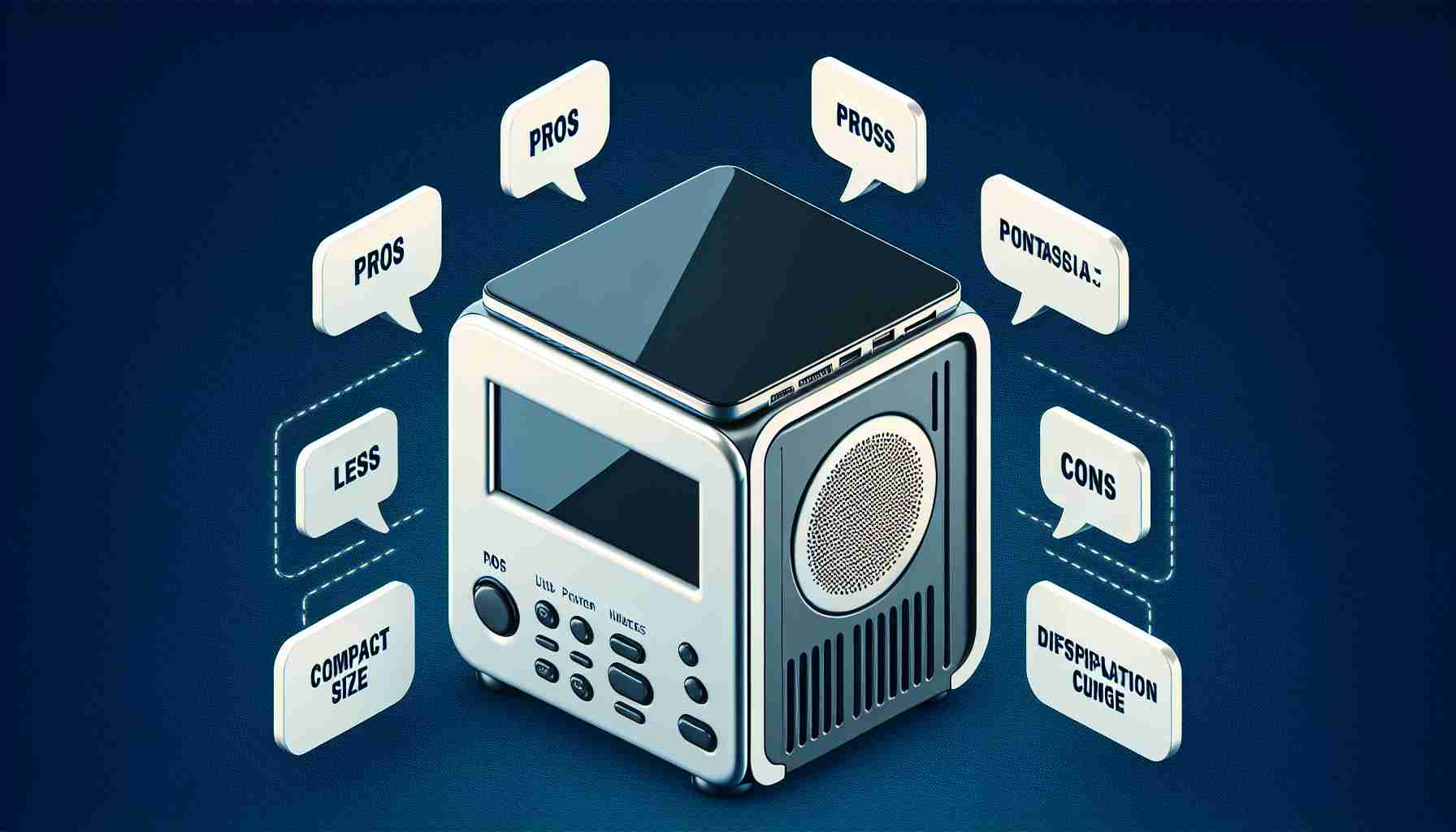Pros:
– Impressive build quality
– Compact size
– Outstanding gaming performance
Cons:
– High price tag
– Limited CPU cooling
– Potential noise issues under heavy load
When it comes to mini PCs, there is a delicate balance between form and function. The compact nature of these devices often means sacrificing certain features or performance capabilities. However, the deliciously compact mini PC we’re about to discuss manages to offer both style and power in a unique package.
One of the standout features of this mini PC is its impressive build quality. From the moment you lay eyes on it, you can tell that every detail has been carefully considered. The sleek design and attention to detail make it a visually appealing addition to any setup.
In terms of performance, this mini PC does not disappoint. With its excellent gaming performance, gamers can expect a smooth and immersive experience. Thanks to the liquid-cooled RTX 4080 Super, games run seamlessly, delivering stunning visuals and fluid gameplay.
However, it’s important to note that this mini PC does come with a few drawbacks. Firstly, it comes with a hefty price tag. While the performance and design are undeniably impressive, the cost may be a barrier for some potential buyers.
Additionally, the CPU cooling in this mini PC has its limitations. Under heavy usage, the CPU can get quite hot, which may affect performance in certain scenarios. It’s important to consider your specific needs and usage patterns before making a decision.
Lastly, some users have reported that this mini PC can be noisy under load. This is particularly noticeable during intensive gaming sessions or CPU-heavy tasks. If you require a quiet workspace, this may be a factor to consider.
In conclusion, the compact mini PC offers a unique combination of style and power. Its great build quality, compact size, and excellent gaming performance make it an enticing option for those who prioritize aesthetics and gaming capabilities. However, the high price tag, limited CPU cooling, and potential noise issues may deter some potential buyers. It’s important to weigh these pros and cons before making a purchasing decision.
Additional facts:
– The mini PC is equipped with the latest generation Intel i9 processor, providing fast and efficient performance.
– It has a solid-state drive (SSD) for quick boot times and faster data access.
– The compact size of the mini PC makes it easy to transport and ideal for small spaces.
– It comes with multiple USB ports, HDMI, and DisplayPort connectivity options, allowing for versatility in connecting peripherals and external displays.
Important questions and answers:
1. What is the price range of compact mini PCs?
– The price range for compact mini PCs can vary significantly depending on the brand, specifications, and features. It can range from several hundred dollars to over a thousand dollars.
2. Can the compact mini PC handle demanding software or applications?
– Yes, compact mini PCs can handle demanding software or applications, including graphic design software, video editing tools, and gaming. However, the performance may vary depending on the specific model and configuration.
Key challenges or controversies associated with the topic:
1. Limited upgradeability: Due to their compact size, mini PCs often have limited upgrade options, making it difficult to upgrade components such as the CPU or graphics card in the future. This can be a concern for users who want to future-proof their systems.
2. Heat management: The small form factor of compact mini PCs can pose challenges when it comes to heat management. Limited space for cooling mechanisms may result in potential overheating issues, especially during heavy usage.
Advantages:
– Portability: Compact mini PCs are lightweight and easy to carry, making them suitable for on-the-go use or for setting up in multiple locations.
– Space-saving: Their small size allows for easy placement on desks or in small living spaces, making them ideal for those with limited space.
– Aesthetically appealing: The sleek design and compact form factor of mini PCs can enhance the aesthetics of any setup.
Disadvantages:
– Limited upgrade options: Mini PCs often have limited upgrade options, making it challenging to improve performance or replace components in the future.
– Potential overheating: The compact size of mini PCs can lead to limited cooling capabilities, potentially resulting in overheating issues.
– Higher price: Compact mini PCs can be more expensive compared to larger desktop computers or laptops with similar specifications.
Link to related domain: Digital Trends



















